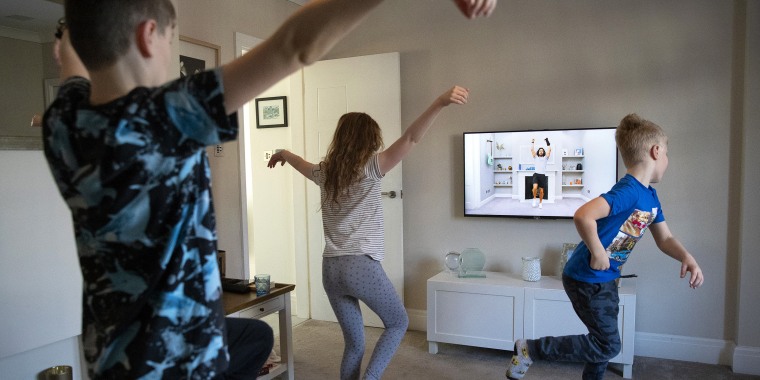COVID-19 has turned the world upside down for everyone. When it comes to kids, this can be especially difficult. School is online or taught from home, some states have had to curtail normal outdoor activity, and screen time is likely much higher than any adult in their lives would like. It can feel overwhelming to parent in this environment.
Perhaps at the top of most parents’ concerns is the physical and mental health implications that come along with less time spent outdoors. In city environments in particular, access to green space is off the table for now. Kids have energy to burn and a need for movement.
The links between nature and mental health are well documented. One study in particular highlighted the fact that green space in childhood can have long-lasting benefits into adulthood. While that might seem unsettling at a time when your kids can’t be outside, take heart in the fact that it is a temporary situation. In the meantime, everyone needs to be aware of how their children are coping and develop strategies for helping them.
Just like adults, kids are struggling with loss of control
As the pandemic stretches ever longer, mental health experts predict a shift in how kids process the situation. “In the beginning, we were hearing about lots of anxiety,” says Roseann Capanna-Hodge, a Connecticut-based school psychologist and licensed professional counselor. “Now we’re shifting into more sadness and depression as the reality of how long this may take settles in.”
Jennifer Weniger, associate professor of behavioral health at Loma Linda University, says that it’s natural for children to experience ups and downs throughout this period. “You may notice they have a lack of motivation for school or chores,” she says. “You may also hear them complaining about boredom. This is usually a cover for deeper feelings.”
Like adults, kids struggle with the lack of control we all face. “This is where it’s important to shift focus to the things you can control,” says Capanna-Hodge.
Encourage your kids to talk about their feelings
Keep in mind that it helps children to be in touch with their feelings and encourage them to speak about them. “Emphasize that you are there to support them,” says Weniger, “and be careful to make it about their feelings, not yours.”
What does all this look like in practice? To begin with, try to establish a loose routine because structure can be calming and afford kids a sense of purpose. This will look different for every family, and from one region to the next.
In doing so, however, make sure the kids get a voice in how their days are made up. “Empowering kids through choice is important to their mental health and returns back some control,” says Capanna-Hodge. “This is not a time for dictatorship in the home.”
Make time for breaks, movement and meditation
Parents should manage their own expectations of their children, too. While kids may have remote school or a parent-led course of instruction, remember that even if they were in school, they would not be sitting still for six hours straight. Insert some movement and breaks into their days.
If you’re stuck inside, this could look like online family fitness classes like the recent series launched by NEO Kids, PopSugar Fitness’ family sweat sessions, or UNICEF Kid Power dance and yoga platform.
These can serve as welcome breaks to schoolwork and also provide kids with much needed movement to help physical and mental health. “If your kids can’t get outside right now, find the positives to focus on,” recommends Weniger. “Be grateful for your health and do all the things to maintain it, from eating well to indoor exercise. Try to make self care as fun as possible for your kids — having a good attitude is everything and will rub off on children.”
Now is a good time to consider meditation and breathing exercises for kids, too. Downloading an app like Calm or Headspace and carving out a few minutes for everyone to tap into these mind quieting exercises together can be beneficial. Setting the example and leading the way will demonstrate their value to kids and help get them to buy in.
Allow older kids some autonomy in structuring their days
With teenagers and young adults, the struggles are different than those of younger children. “Developmentally, they want autonomy and they’re suffering from their sudden loss of independence,” says Capanna-Hodge. “Here you need to use positive language and allow them to structure their days as much as possible.”
Even with older kids, however, you may have non-negotiables in regard to their overall well being. This might look like including time for exercise, taking part in chores around the house, and occasional check-ins on school progress. “Have some boundaries and limits, but don’t punish them by taking away their Minecraft, for instance,” says Capanna-Hodge. “This is their access to socializing right now and they need that.”
Try to make self care as fun as possible for your kids — having a good attitude is everything and will rub off on children.
Jennifer Weniger, associate professor of behavioral health at Loma Linda University
Remember too that with all ages of children, this is a generation accustomed to activities and screens to fill their time. “We grew up knowing how to play or use our imaginations and that’s not so much the case with today’s children,” Capanna-Hodge says. “You may need to brainstorm with your kids to come up with physical and creative activities.”
In spite of all your efforts, there may be signs that your kids are truly in trouble, and in those cases, seek professional tele-health. Signs like too much or far too little sleep, a persistent bad mood or sadness, or an extended lack of engagement may all signal a need for outside intervention. “Take your child to a professional if the situation becomes severe,” says Weniger. “There are many good tele-health services you can access.”



